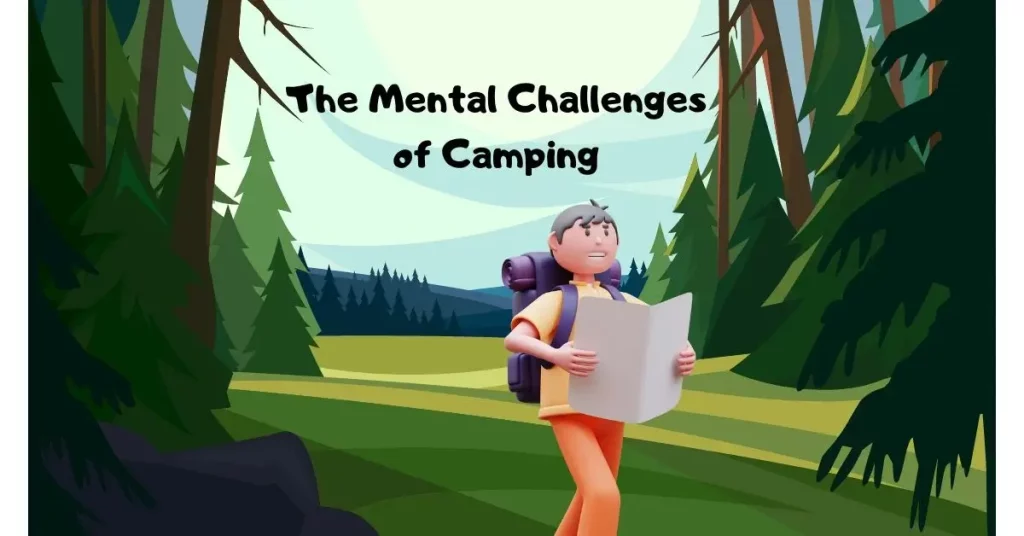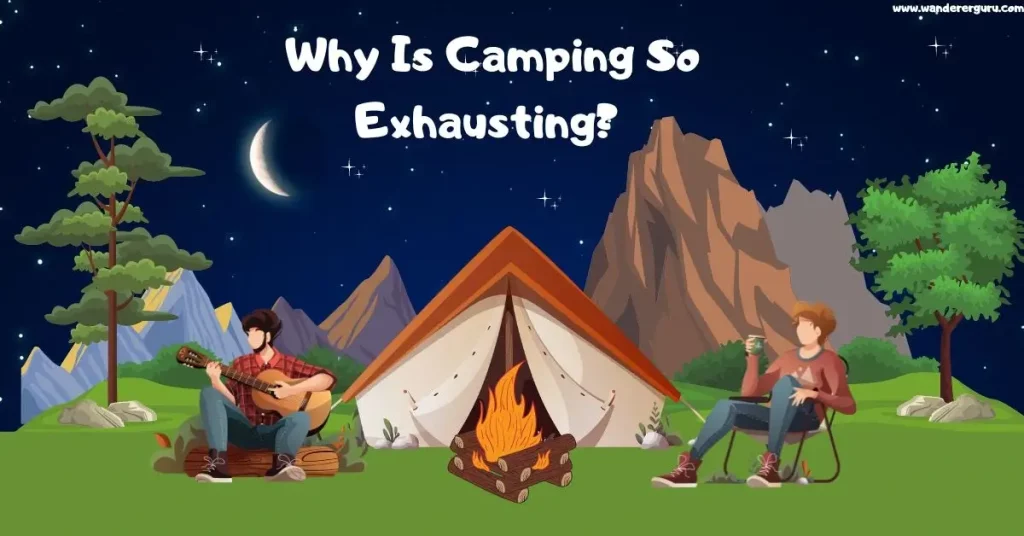Have you ever returned from a camping trip and asked yourself why is camping so exhausting? Camping, a beloved outdoor activity, offers a chance to connect with nature, unplug from technology, and rejuvenate the mind and body. However, it can also be physically and mentally demanding.
In this article, we will delve into why camping can be so exhausting and provide insights into optimizing your camping experience for maximum enjoyment and relaxation.
Understanding the Physical Demands of Camping
Hiking and Trekking
One of the primary reasons camping can be exhausting is the physical activity involved, particularly hiking and trekking. Exploring scenic trails, navigating rugged terrains, and carrying a backpack with essentials can significantly strain the body. Uphill climbs, uneven surfaces, and long distances can challenge even the fittest individuals, leading to fatigue and muscle soreness.
Setting Up Camp
Once you arrive at your camping destination, the physical demands continue as you set up camp. Erecting tents, securing guy lines, and assembling camping furniture require physical strength and endurance. It often involves repetitive movements, such as hammering stakes into the ground or lifting heavy objects, which can further contribute to exhaustion.
Gathering Firewood and Water
In many camping scenarios, sourcing firewood for warmth, cooking, and collecting water for drinking and cleaning falls upon the campers. These tasks may involve trekking through the wilderness, chopping wood, and carrying heavy containers. Such activities demand physical exertion and can deplete energy reserves, primarily when performed multiple times during a camping trip.
The Mental Challenges of Camping

Adaptation to a New Environment
Camping often takes us out of our comfort zones and places us in unfamiliar surroundings. Adapting to a new environment can be mentally taxing as we adjust to different weather conditions, sleeping arrangements, and basic amenities. Our minds must constantly process and adapt to these changes, which can be draining and contribute to mental exhaustion.
Planning and Decision Making
Planning a camping trip involves making numerous decisions, such as choosing a suitable location, preparing the necessary gear, and organizing meals. These decisions require thoughtful consideration, including researching campgrounds, checking weather forecasts, and calculating distances. The mental effort involved in planning and decision-making can be overwhelming, especially for those new to camping.
Managing Unexpected Situations
Camping is an adventure filled with unpredictable elements. From sudden weather changes to facing wildlife or equipment malfunctions, unexpected situations can arise during a camping trip. Managing these situations requires quick thinking, problem-solving, and staying calm under pressure. The mental strain of handling unexpected events can add to the overall exhaustion experienced during camping.
Bonus:
How to shave while camping? Complete Guide
Coping Strategies for a More Energizing Camping Trip
While camping can be physically and mentally demanding, there are strategies you can employ to make your experience more energizing and enjoyable. Consider the following tips:
Physical Preparation
Regular physical exercise before your camping trip can improve your endurance and strength, making handling the physical demands of hiking, camping, and other activities more accessible. Incorporate activities such as hiking, jogging, or strength training into your routine to build stamina and prepare your body for the challenges ahead.
Proper Gear and Equipment
Investing in high-quality gear and equipment can significantly impact your camping experience. Ensure you have comfortable hiking boots, a well-fitting backpack, and appropriate clothing for varying weather conditions. Lightweight camping gear and compact tools can make camp more efficient and less physically taxing.
Mindful Relaxation Techniques
Camping is not just about exertion; it’s also an opportunity to relax and rejuvenate. Incorporate mindful relaxation techniques into your camping routine to reduce mental exhaustion. Practice activities such as meditation, deep breathing exercises, or simply immersing yourself in the peaceful sounds of nature. Taking time to unwind and recharge can help balance the physical and mental demands of camping. For more ideas, visit my Pinterest.
Conclusion
Camping offers a unique escape from the hustle and bustle of daily life, allowing us to reconnect with nature and ourselves. However, it’s essential to recognize that camping can be physically and mentally exhausting due to the demands it places on our bodies and minds. By understanding these challenges and employing coping strategies, we can enhance our camping experiences and make them more energizing and fulfilling.
FAQs
Q.1 Is camping suitable for everyone or more physically demanding?
Ans: Camping can be enjoyed by people of different fitness levels, but it does involve physical activity and endurance. Adjust the level of difficulty to your abilities and gradually build your stamina.
Q.2 How can I improve my endurance for hiking during camping trips?
Ans: Regular exercises like hiking or jogging can help improve your endurance. Start with shorter hikes and gradually increase the distance and difficulty over time.
Q.3 Are there any mental health benefits associated with camping?
Ans: Yes, camping can have positive effects on mental health. It allows for disconnection from technology, promotes relaxation, reduces stress, and provides an opportunity for introspection and self-reflection.
Q.4 What are some common mistakes to avoid to prevent exhaustion during camping?
Ans: Overpacking unnecessary items, not pacing yourself during activities, neglecting to stay hydrated and nourished, and not allowing for adequate rest can contribute to exhaustion during camping.
Q.5 How can I ensure a good night’s sleep while camping?
Ans: Choose a comfortable sleeping pad or mattress, use a high-quality sleeping bag suitable for the temperature, and consider earplugs or a sleep mask to minimize disturbances. Stick to a consistent sleep schedule and create a relaxing bedtime routine.
Bonus:

